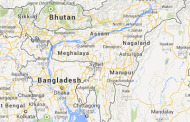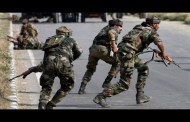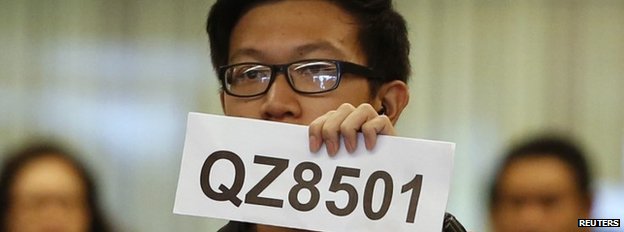New Delhi: It was a chilly morning on Monday with minimum temperature settling three notches below normal at 4.8 degrees Celsius while dense fog enveloped the city, delaying 98 trains and several flights in the national capital.
The minimum was two degrees higher than yesterday’s minimum of 2.6 degrees which was lowest of the season so far.
The dense fog badly affected train operation in the northern zone. According a northern Railway official, 98 trains were running late by several hours. Almost all north-bound trains including Mahananda Express, north-east Express, Vikramshila Express, Magadh Express, Punjab Mail, Poorva Express are running more than ten hours late.
Rajdhani Express coming from Bhubaneswar, Sialdah and Dibrgarh are also affected due to the bad weather, he said adding that Railways has rescheduled departure time of 20 trains.
23 flights, mostly international, have also been delayed due to foggy conditions.
The visibility according to MeT departments officials was 50 meters at 5.30 AM which increased to 100 meters at 8.30 AM.
MeT has predicted a clear day ahead.
“The maximum is expected to hover at 19 degrees Celsius,” said the weatherman.
PTI
Three children died in the Izatnagar area in Bareilly after they allegedly consumed milk, police said on Sunday.
Sarvesh (4), Amit (2) and Nisha (3) had consumed milk before going to sleep yesterday night and they did not wake up on Sunday morning, they said.
Their bodies have been sent for postmortem and milk samples have been seized and sent for forensic examination, police said.
NATO formally ended its war in Afghanistan today, holding a low-key ceremony in Kabul after 13 years of conflict that have left the country in the grip of worsening insurgent violence.
The event was arranged in secret due to the threat of Taliban strikes in the Afghan capital, which has been hit by repeated suicide bombings and gun attacks over recent years.
“Together… we have lifted the Afghan people out of the darkness of despair and given them hope for the future,” NATO commander US General John Campbell told assembled soldiers.
“You’ve made Afghanistan stronger and our countries safer.”
On January 1, the US-led International Security Assistance Force (ISAF) combat mission, which has suffered 3,485 military deaths since 2001, will be replaced by a NATO “training and support” mission.
About 12,500 foreign troops staying in Afghanistan will not be involved in direct fighting, but will assist the Afghan army and police in their battle against the Taliban, who ruled from 1996 until 2001.
When numbers peaked in 2011, about 130,000 troops from 50 nations were part of the NATO military alliance.
“I hope you take great pride in the positive impact you’ve made and will continue to make upon the Afghan people,” Campbell said in a speech released by ISAF on Twitter as live broadcasts were banned for security reasons.
Campbell folded up the ISAF flag and unveiled the flag of the new mission, named Resolute Support.
The ceremony — held in a sports hall at NATO headquarters — completed the gradual handover of responsibility to the 350,000-strong Afghan forces, who have been in charge of nationwide security since last year.
But recent bloodshed has undermined claims that the insurgency is weakening and has highlighted fears that the international intervention has failed as Afghanistan faces spiralling violence.
The United Nations says that civilian casualties hit a record high in 2014, jumping by 19 percent with 3,188 civilians killed by the end of November.
Afghan’s police and army have also suffered a grim death toll, with fatalities soaring to more than 4,600 in the first 10 months of 2014 — far higher than all ISAF deaths since 2001.
A team of Japanese experts will visit India’s northeastern states in next three weeks to study the details for the survey for infrastructure development projects in the area, a top official said. The project is expected to start before the end of next year and will enhance connectivity and development in northeastern states, described by China as India’s “most neglected region”.
“The preparatory survey has already commenced for the infrastructure development project which will include reconstruction of roads and old bridges,” said Sinya Ejima, chief representative of Japan International Cooperation Agency (JICA), which provides technical cooperation and other forms of aid promoting economic and social development in India. “Our team of experts will visit the states barring Arunachal Pradesh in third week of January to do a detailed study and the work is expected to start by end of the next year,” Ejima said.
During a meeting between Prime Minister Narendra Modi and his Japanese counterpart Shinzo Abe in September when Modi travelled to Japan, the two leaders placed special emphasis on Japan’s cooperation for enhanced connectivity and development in Northeast India and linking the region to other economic corridors in India and to Southeast Asia, which would catalyse economic development and increase prosperity in the region.
Earlier this year, ahead of general election in India, China’s state-run Xinhua news agency had said “India’s northeastern states, which also include Manipur, Mizoram, Meghalaya and Nagaland are said to be the country’s most neglected region. Under the agreed project, Japan with an estimated US $100 million aid will reconstruct roads and improve other infrastructure in these states.
Apart from infrastructure development in North Eastern states, JICA is also actively assisting Delhi Metro project, which is in its third phase. JICA is also providing assistance to Delhi-Mumbai Industrial Corridor (DMIC) and the Chennai- Bengaluru Industrial Corridor (CBIC) in South India, as well an assistance to strengthen Japan-India academic-industry networks, and human resources development for industries such as manufacturing.
The Japanese Agency is also associated with various projects relating to sewerage and water supply in India with a total loan commitment of Rs 28,660 crore in Delhi, Uttar Pradesh, Rajasthan, Punjab, Odisha, West Bengal, Tamil Nadu, Andhra Pradesh, Kerala, Karnataka and Goa. Ejima informed that current commitment of JICA’s assistance in urban sector including water and transport is of the order of Rs 2,40,000 crore.
The city government has informed the Delhi High Court that there is a shortage of 152 trained Urdu teachers and the process of appointment was already underway.
The submission came in an affidavit filed by Delhi government’s Directorate of Education (DoE) before a bench of Chief Justice G Rohini and Justice R S Endlaw while hearing a PIL filed by lawyer Mushtaq Ahmad on behalf of NGO Shiksha Seva Samiti and some other societies.
“DoE had assessed an additional requirement of 152 TGT (trained graduate teachers) Urdu posts and the process of creation thereof is in the pipeline. There exists some shortage of regular Urdu teachers for which necessary requisition had been sent to Delhi Subordinate Service Selection Board and the process of appointment is going on,” the affidavit said.
It also submitted that most of the universities in country do not have Urdu as a medium of instruction at graduation level in any discipline which has led to non-availability of Urdu trained graduate teachers.
“Urdu teachers under the Sarva Shiksha Abhiyan are also appointed every year on contract basis to overcome shortage of Urdu teachers. There exists no shortage of Urdu teachers in schools where Urdu is taught as a language and so also in Urdu medium schools,” the affidavit said.
The city government also told the bench that DoE had deployed teachers from Urdu Academy in the Urdu medium schools to teach subjects like Mathematics, Science, Social Science in Urdu medium.
“There are 228 government schools under the DoE, GNCTD in which Urdu is being taught as a language and in addition to this, there are 21 government schools under the DoE, where Urdu is the medium of instructions,” the affidavit added.
The PIL was filed with the request that appointment of Urdu teachers may be made like that of other teachers, that all vacancies of Urdu teachers must be filled up and Urdu schools which have been closed down should be reopened and teachers appointed there.
Never the one to shy away from an on-field showdown, feisty Indian batsman Virat Kohli said being called a “spoilt brat” by the Australians brought the best out of him as he smashed a career-best 169-run knock to keep the touring side afloat in the ongoing third cricket Test here today.
“It was going on throughout the day. They were calling me a spoilt brat and I said ‘maybe that’s the way I am. You guys hate me and I like that’. I don’t mind having a chat on the field and it worked in my favour I guess,” a combative Kohli said at the end of third day’s play which India finished at 462/8, still trailing by 68 runs.
“I like playing against Australia because it is very hard for them to stay calm and I don’t mind an argument on the field and it really excites me and brings the best out of me. So they don’t seem to be learning the lesson,” said Kohli.
The most dramatic moments of the day involved Kohli in a verbal spat with Mitchell Johnson after the pacer ended up hitting the Indian while attempting to run him out.
Talking about Johnson, Kohli said, “In Brisbane he was batting without pressure because that’s not his job. His job is to take wickets and he was going at 4.7 an over today, and he didn’t get a wicket throughout the day and I backed myself to take him on even if I keep talking to him.
“I decided whenever he comes on to bowl I will back myself and take him on. I don’t mind having a word back, neither does he, so we kept going at it.”
Kohli and Ajinkya Rahane put on 262 runs for the fourth wicket in reply to Australia’s first innings total of 530 runs. There have been a lot of heated moments in this series and Sunday’s incidents were just another chapter to that saga.
“They have the right to talk I guess. They are 2-0 up right now. It would have been interesting if it had been 1-1 and the same sort of sentences or words had come through from them. When you are on top you can sort of say anything you want.
“It’s when chips are down that you have got to stand up. When we played in India (in 2012-13) there weren’t so many words coming back from them. We are 2-0 down, we still took them on today, and showed what we can do with the bat, which is the character of this Indian team,” said a defiant Kohli.
When asked if he respected the Australian team, Kohli replied, “I have got a nice friendship with a few of them. I respect quite a few of them, but someone who doesn’t respect me I have no reason to respect him.”
“There were words in Adelaide as well where they said no unnecessary respect for him. I said I don’t need it. I am out here to play cricket, not to earn anyone’s respect. As long as I am scoring runs, I am happy with it.”
Kohli said he relishes the challenge of playing against Australia and was delighted with the way the third day turned out for his side.
“I am very proud of the way we played today and we backed ourselves throughout. I am not disappointed at all. Before coming here I told myself I am going to be positive. There is no reason why I should change my game from ODI cricket to Test cricket because sometimes we end up thinking too much and forget about playing our natural game,” said Kohli.
“You saw Ajinkya Rahane today and he crossed me to a hundred and that was brilliant. At no point did I tell him to back off and not play his game and that is what is working for us as a batting unit,” he added.
Kohli and Rahane came together at the crease when India were 147/3 in the morning session and then weren’t separated until after tea.
They became the first pair to post 200-plus for the fourth wicket at this ground. Rahane scored 147 runs while Kohli scored his fourth Test hundred in Australia and third of this series against this opposition.
“I was criticised for not getting big hundreds. It is disappointing to get out on 115 or 120 after having done all the hard work so those are the times when I told myself to take more time. Today I got a good feel of building up a big hundred, so did Rahane which is good for the team.
“If you get big partnerships we give ourselves more chances of being in the game wherever we play. It’s all about correcting your mistakes and learning from your innings be it a hundred as well. Next time if I am in a situation again, I will want to convert it into a double hundred,” Kohli said.
“I was actually a little surprised the way Rahane went after Johnson, clearing his leg and all. He is a compact player, and I didn’t know he was going to go after him in this surprising way. But it was pleasing to watch, a guy backing himself, playing for the first time in Australia, taking a bowler on who is looking to get into rhythm, who bowls long spells for them, who bowls quick, who bowls good bouncers,” he added.
Australia were disappointing in the field on the day as they dropped three very easy chances.
“They set very high standards for themselves in the field. Today it was actually surprising to see them dropping three catches, so many misfields and easy singles for us. I don’t remember the last time I have seen them being inconsistent in the field,” said the batsman.
“It would have been nice had I not got out. But still we have Mohammad Shami who is playing well, and Umesh Yadav can play the big shots too. We will try to get close to 500 runs, and then if we can get two or three quick wickets it will be an enjoyable game,” Kohli signed off.
As many as 102 militants were killed while 29 Army men lost their lives in counter-terrorist operations in Jammu and Kashmir this year.
“102 terrorists have been killed during the year, 47 were apprehended and one surrendered in operations in Jammu and Kashmir this year,” Defence PRO Col S D Goswami said.
“The proponents of the proxy war were desperate to push in terrorists by attempting maximum infiltration to disrupt the Assembly elections. Many infiltration bids were foiled by the Army,” he said.
Army also recovered 394 different types of weapons in different operations along the LoC and in hinterland in the state, he said, adding that terrorists had planted 15 IEDs, but these were detected and defused by the Army, averting major tragedies.
Army suffered 29 fatal casualties and 45 non-fatal casualties in counter terrorist operations in the state during the year, the PRO said.
“Army is an apolitical force and does not get involved directly in electoral process. Army had a role of ensuring a safe and secured environment for the conduct of free and fair polls and we did that by being vigilant and carrying out relentless operations with surgical precision based on accurate intelligence which resulted in (the process being) devoid of any interference by terrorists,” he said.
“The security situation of J&K has a direct linkage with the infiltration through IB and LoC from across the border,” he said.
“We are giving primacy to preventing infiltration by adopting a robust counter infiltration strategy which has an appropriate mix of technology and human resources, while we simultaneously degrade the remaining terrorists in the hinterland,” the PRO said.
“The terrorist threat remains real as the terrorist infrastructure across the border remains intact,” he said.
An AirAsia Indonesia airliner flying from Indonesia to Singapore with 162 people on board has gone missing.
Flight QZ8501 lost contact with air traffic control at around 06:20 local time (23:20 GMT) over the Java Sea.
The plane, an Airbus A320-200, disappeared midway into the flight of more than two hours from the city of Surabaya. No distress call was made.
Bad weather was reported in the area, and an air search operation has now been suspended for the night.
Planes from Indonesia and Singapore had been scouring an area of sea between Kalimantan (Borneo) and Java. Some boats are reported to be continuing to search as night falls.
No wreckage has been found, an Indonesian official told the BBC.
The flight left the Indonesian city of Surabaya in eastern Java at 05:20 local time (22:20 GMT) and was due to arrive in Singapore at 08:30 (00:30 GMT).
The missing jet had requested a “deviation” from the flight path due to storm clouds, AirAsia said.
Indonesia’s transport ministry said the pilot had asked permission to climb to 38,000 ft (11,000m) to avoid thick cloud.
AirAsia, a budget airline which owns 49% of AirAsia Indonesia, is based in Malaysia and has never lost a plane.
However, 2014 has been a difficult year for aviation in Asia: Malaysia’s national carrier Malaysia Airlines has suffered two losses – flights MH370 and MH17.
Flight MH370 disappeared on a flight from Kuala Lumpur to Beijing in March with 239 passengers and crew. The wreckage, thought to be in southern Indian Ocean, has still not been located.
MH17 was shot down over Ukraine in July, killing all 298 on board.
Flight QZ8501 was supposed to arrive early this morning. Hours later the families of the passengers gathered here have very little information.
Airport officials are keeping them well away from the media and trying to make them comfortable.
The AirAsia incident comes at the end of a difficult year for air travellers in the region, and the scenes at Changi airport today are reminiscent of those in Kuala Lumpur immediately after MH370 went missing in March: anxious relatives waiting for any news on their loves ones, a media frenzy, but no answers.
The Airbus, pictured here on an earlier flight, disappeared about an hour after takeoff
Emergency contact
There were 155 passengers on board, the company said in a statement:
- 138 adults, 16 children and one infant
- Most on board were Indonesian
- Several were from other countries: one UK national, a Malaysian, a Singaporean and three South Koreans
- Two pilots and five crew were also on board – one French, the others Indonesian
AirAsia has set up an emergency line for family or friends of those who may be on board. The number is +622 129 850 801.
Dozens of passengers’ relatives have been gathering at Juanda airport in Surabaya and Singapore’s Changi airport to hear news.
Changi airport authorities have set up a holding area for relatives. It said 47 had arrived and care officers and counsellors were on hand to provide support.
India’s long-held position as the world’s top diamond polisher is being challenged by soaring output from China, compelling the south Asian country to seek help from ally and top rough diamond supplier Russia to defend its market share.
India has traditionally relied on the middlemen in trading hubs of Antwerp, Tel Aviv and Dubai for its supply of rough diamonds, which mainly come from Russia or Africa. Most of the world’s diamond output is sent to India for cutting and polishing before being retailed around the world.
But China has managed to break the established trade route by getting diamonds directly from African mines in which Chinese companies have a stake. This has boosted the value of China’s net exports of polished diamonds by 72 percent in the past five years to $8.9 billion.
While India’s exports, supplied by firms such as Asian Star (ASAN.BO), Gitanjali Gems Ltd (GTGM.NS) and Venus Jewel, rose 49 percent to $14 billion over that time, shipments have seen a sharp drop this year.
“China’s active procurement of rough supply from African countries was reducing the supply available to Indian manufacturers,” said Sandeep Varia, an executive of Indian industry body Assocham. “Many units across the country had to lay off workers due to losses.”
As a result, China’s share of the global polished diamond market has tripled to 17 percent in the past decade, according to data from the United Nations. India’s share has fluctuated between 19 and 31 percent.
BRING IN RUSSIA
Indian Prime Minister Narendra Modi, who comes from Gujarat where the polishing industry is centred, has answered calls to bolster the diamond sector by convincing Russia to sell rough diamonds directly to India.
During President Vladimir Putin’s visit to New Delhi this month, Russia’s state-run diamond monopoly Alrosa (ALRS.MM) signed a dozen deals to increase direct rough diamond deliveries to India that would help reduce the cut taken by middlemen in the secretive precious gems trade.
The direct deals would also reduce risks linked to Western sanctions imposed over Russia’s annexation of Crimea, while Modi is additionally seeking arrangements that would allow Russian jewellery makers to send rough diamonds to India and re-import polished stones duty-free.
But to compete effectively with China, India will also need to streamline its tax and import rules, industry sources said.
“China is not going to displace India as the leading diamond polishing hub any time soon, but India needs to reform its archaic tax rules to make the Indian diamond polishing industry more attractive for foreign miners,” said Martin Rapaport, chairman of diamond and jewellery service firm Rapaport Group.
India is looking to build a special notified zone where companies can import rough diamonds on a consignment basis and re-export unsold ones, mirroring China’s investor-friendly trading zones that avoid complicated export and import taxes.
“These are positive moves for the industry,” said Mehul N. Shah, committee member of India’s Bharat Diamond Bourse. “It will increase profit margins of the Indian diamond manufacturing industry and make it more competitive.”
Despite China’s upper hand in securing rough diamonds, its cutting and polishing industry is not as organised as India’s and rising labour costs are a problem.
“The Chinese diamond polishing industry works on a contract-basis and through joint ventures,” said Rapaport. “They are consistent at mass producing small stones, but lack the expertise required for bigger and finer stones.”
While the world celebrates Thanksgiving, Hannukah and Christmas, India dedicates its Decembers to weddings (upon weddings… upon weddings).
Following Arpita Khan‘s parade of parties and Rriddhi Malhotra‘s couture-studded big day, was the wedding of Shirin Morani, daughter of producer Ali Morani.
As is to be expected, the guest list was nothing short of glamorous. The attire, predictably sparkly, was a combo of pretty pastels and powerful pop hues.
Almost always spotted in ethnic ensembles these days, Aishwarya Rai Bachchan attended the wedding in a delicately embroidered Abu Jani-Sandeep Khosla churidar. Anushka Sharma made her minty green Sabyasachi salwar kameez stand out with a red velvet dupatta. Esha Gupta’s Payal Singhal lehenga was a favourite too – you can’t deny the simple elegance of that barely-there blue.
In stark contrast, a very decadent Priyanka Chopra walked into the wedding almost draped in liquid gold. Blood red roses in her hair made the perfect accessory. Going with a slightly less intense look, Malaika Arora Khan chose a bubble gum pink Seema Khan sari, followed by Anusha Dandekar, wearing a floor-length anarkali also accentuated with bright rosy shades.
The pink loving didn’t stop there. Favouring bright hues quite a bit lately, Bipasha Basu unveilied the music of her upcoming release in a hot pink Zulekha Shariff gown: a great hue for that envy-worthy bronze skin.

















Recent Comments